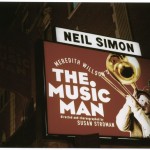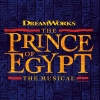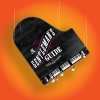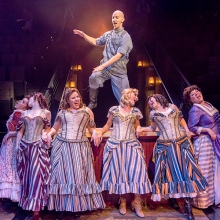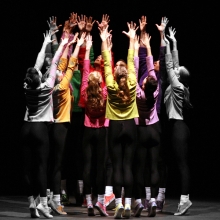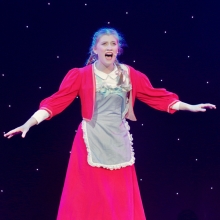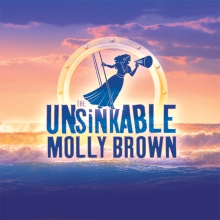Filichia Features: My Most Memorable Music Man
Filichia Features: My Most Memorable Music Man
THE MUSIC MAN Revival at the Neil Simon Theatre
Seeing The Music Man at the Bergen County Players last week reminded me of the previous time that I’d seen The Music Man.
That happened in September as well. And although I’ve since witnessed about 3,500 stage productions, that Music Man of 11 years ago is one I haven’t forgotten – and will never forget.
It’s a performance that can offer a lesson for everyone who’s involved with theater, be it amateur or professional: the show must go on, no matter what any of us is feeling. Indeed, there will be times when you’re scheduled to perform, direct or assist a production – and suddenly, something terrible will happen to you.
But going on is best for everyone.
It was Thursday, September 13, 2001 at the Neil Simon Theatre. What had happened approximately 60 hours earlier had made the cast and crew of the Broadway revival of The Music Man -- and the audience that night -- uncertain of whether or not the show should indeed go on.
Broadway didn’t perform on that infamous Tuesday after the terrorist attacks had brought down the Twin Towers. It skipped both performances, too, on Wednesday the 12th. But all shows would return on Thursday.
Of the 23 shows that were then on Broadway, I knew that Susan Stroman’s revival of The Music Man was the one I most wanted to attend. The musical is first and foremost an all-American extravaganza. One scene even takes place on the Fourth of July. Since it had opened, all performances ended with an enormous American flag filling the back wall.
Yet how would we all feel on this night when we heard, “Ya got trouble, right here in River City” -- now that our city had seen trouble unlike any of the characters onstage or the audience members could have ever imagined?
Would we break into tears? Would the performers do so too if they saw us crying?
I was able to get a third-row orchestra seat, right on the aisle. Granted, The Music Man had taken a big dip the previous week, for Labor Day and the kids returning to school always begins a dull period for family shows. Besides, any vintage musical that doesn’t win the Best Musical Revival Tony (Kiss Me, Kate did that season) usually has many seats available 17 months into its run. But I suspected that walk-up business would not be good tonight.
I showed up at 7:50, after enduring the air that still smelled of smoke and burned objects. I entered the lobby, and found that three understudies were listed on the board. Were the regular performers ill? Not emotionally ready? Downright scared to be in New York City?
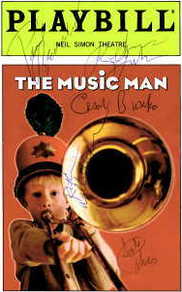
Then I passed the souvenir stand, where one could buy a red T-shirt that simply said “Trouble.” To think that only two days ago, that had a carefree meaning.
No longer.
By 8:06, just before the house lights dimmed, I saw that the house was about a fifth-filled. At the Neil Simon, that meant about 300 people in attendance. Not only was the house sparsely attended, but the way that many pairs of empty seats dotted the rows suggested that some of those were sold. Scores of people apparently had tickets and had feared coming into the city, or couldn’t bear the inconvenience.
The lights dimmed, and over the p.a. system the voice of new star Robert Sean Leonard acknowledged what had happened. He offered sympathies for the victims and families and then added, “But our country will go on; our city will go on, and, as is our tradition, our show will go on.” The audience applauded wildly, making it seem louder than its low numbers would have suggested.
Pretty soon, many of the theatergoers were giggling and guffawing, as the traveling salesmen jostled themselves in time during “Rock Island.” I suddenly realized that this was the first laughter I had heard in more than two days.
During “Iowa Stubborn,” however, I felt a frisson fill my shoulders when I heard, “But we’ll give you our shirts and a back to go with it if your crops should happen to die.” I thought of all the heroic rescue crews who had been doing that for two-and-a-half days now.
Then came “Trouble” and I realized we had nothing to fear. By then, Leonard and the excellent cast had made us relax enough so that we were now firmly entrenched in this world of 1912 Iowa, and not the one outside. At the end of the number, however, when the American flag was raised up the pole, the applause was, I believe, a bit greater than it would have been without Tuesday’s events.
But I felt a little queasy when Tommy Djilas threw a firecracker, and a plume of smoke soon emerged from center stage. I may have been the only one to have jumped – no one was in the two rows in front of me – but I don’t think so. We were all pretty sensitive to anything that even remotely took us back to Tuesday’s tragedy.
Soon, however, any anxiety was replaced by rhythmic applause during Stroman’s excellent work on “76 Trombones,” although it was greatly eclipsed by the torrent of handclaps at the end. And so it went: “Sincere.” “Pickalittle.” “Marian the Librarian.” By the time Rebecca Luker had expertly finished “My White Knight,” I suddenly realized that I hadn’t thought about what happened at the Twin Towers for many minutes in a row. That hadn’t happened since Tuesday morning.
True, the first-act finale in which Winthrop suddenly comes alive thanks to his shiny cornet has always moved me even in the best of times, but I had more tears in my eyes that night.
At intermission, I went out in the street, where the smell of smoke seemed to have greatly abated. Or was it just the excellence of the show that made me think so? I walked to the stage door, where two stagehands were attaching an American flag to a pole. I also heard a few snippets of conversation. One actress didn’t want to leave her child, and stayed home. A child and her mother, both Ohio natives, were demanded to come home by their entire family; they did just that.

Then from behind me I heard someone say, “God, how hard it was getting them all up for tonight’s performance.” Well, you could have fooled me. So far, everyone -- Leonard, Luker, and all the rest -- were giving us their all, seemingly effortlessly.
However, being so close did allow me to see that many cast members hadn’t been making much eye contact with the audience. But in Act Two, by the time they reached “Shipoopi,” they seemed to start and they continued for the rest of the show.
We connected with them, too -- for when Luker began singing, “Till There Was You,” I heard a woman behind me humming the melody along with her. Usually, that’s annoying, but on this night, I loved that a theatregoer was caught in the moment. She was able to put the tragedy aside, too, at least for the moment.
Then Harold Hill was caught, and Marian gave her speech in which she tells the townspeople, “Remember River City before Harold Hill arrived? You ought to be grateful to him for what he’s brought to River City,” Yes -- and I remember New York before this show began. We had to be grateful to the cast of The Music Man for what they’d brought to us this night.
After the flag flew in and we applauded the cast’s bows, we all clapped in unison in what must be the greatest post-curtain call moment in Broadway history: when Stroman had everyone in the cast play a trombone,save for anvil salesman Charlie Cowell, who played the anvil. But then, when the number reached its conclusion, Eric Stern cued his orchestra, and the cast began singing “God Bless America.” We joined in.
That’s when the cast, which had been stoic all night, began showing some tears. Here’s a hasty generalization, but the older the performer, the more he cried.
I’m slightly acquainted with John Sloman and Rebecca Luker, so I decided to wait for them at the stage door. Some time passed before they emerged, so I saw many other cast members come out before them. That’s when I knew that what I’d overheard at intermission -- “God, how hard it was getting them all up for tonight’s performance” -- was absolutely true: each performer had left his sunny face onstage, and now looked so somber, lost and miserable. Bless all these pros for giving their all when they didn’t necessarily feel like it.

John Sloman finally came out. I asked him if he found it tough to do the show. “Yeah,” he said, before shaking his head and adding, “But it was a lot better than watching those planes hit those towers over and over again.”

A few minutes later, I asked Rebecca Luker the same question. “Sure,” she said, “but we had to start again sometime, didn’t we?” Thanks to her, and to everyone else for helping to stall the pain for some minutes, even hours, on Thursday night.
If tragedy strikes you, you may not want to be doing a musical or even be anywhere near a theater. But in fact, you may feel better if you’re out there doing the job. These pros thought so, and, as we all know, “professional” doesn’t solely mean whether or not you’re getting paid; it also references how you conduct yourself.

Read all of Filichia Features.
You may e-mail Peter at pfilichia@aol.com. Check out his weekly column each Tuesday at www.masterworksbroadway.com and each Friday at www.kritzerland.com. His newest book, Broadway Musical MVPs, 1960-2010: The Most Valuable Players of the Past 50 Seasons, is now available through Applause Books and at www.amazon.com.
Share
Callboard
-
Shake and shimmy it with the #Hairspray20Challenge! Join MTI and Broadway Media in celebrating 20 years of #Hairspray. Duet this here or find us on TikTok! Special thanks to @broadwaymedia and @jammyprod. Choreography Guides are a licensor official resource that provides step-by-step instruction from Broadway and professional choreographers for your productions! Visit @broadwaymedia to learn more. #mtishows #youcantstopthebeat #hairspraymusical #goodmorningbaltimore
View on Instagram
